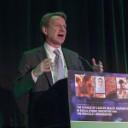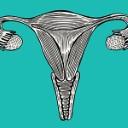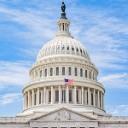-
Making Clinical Trials More Inclusive
Broadening clinical trial eligibility criteria to include cancer patients who also have other health conditions could increase trial enrollment.
by Ashley P. Taylor
-
Does Medicaid Expansion Have an Impact?
Analysis suggests states that opted for Medicaid expansion had higher use of hormone therapy for breast cancer patients.
by Marci A. Landsmann
-
Achieving Health Equality
National Cancer Institute director Norman “Ned” Sharpless describes the challenge and opportunity of studying cancer disparities.
by Marci A. Landsmann
-
Vaccinating Against Cancer
The human papillomavirus vaccine can significantly cut recipients' risk of several types of cancer. So why are vaccination rates relatively low in the U.S.?
by Brad Jones
-
A New Guideline for Cervical Cancer Screening
Physicians Lee Learman and Francisco Garcia discuss the updated U.S. Preventive Services Task Force guideline and the need to increase access to cervical cancer screening.
by Anna Azvolinsky
-
Will Right to Try Increase Access to Experimental Treatments?
The recently passed Right to Try Act is meant to provide patients with greater access to experimental therapies. Patient advocates are divided on whether the law will benefit patients.
by Marci A. Landsmann
-
Bill Aims to Improve Childhood Cancer Research
The STAR Act passes in the U.S. House of Representatives.
by Brad Jones
-
Talking About Medical Marijuana
Medical oncologists discuss marijuana with their patients. Many of these doctors feel they aren't well enough informed to make recommendations about it, but some do anyway.
by Kate Yandell
-
Paying for Tumor Testing
A recent U.S. government decision about coverage of tumor sequencing could affect cancer patients.
by Brad Jones
-
A New Type of Drug Approval
At the AACR Annual Meeting, researchers and regulators discuss what it means to tie approval of an immunotherapy to tumors' molecular characteristics, not to their tissues of origin.
by Kate Yandell
Cancer Talk
Treatment Combination Improves Survival in EGFR-positive Lung Cancer
Adding chemotherapy to targeted therapy improves outcomes for people with advanced EGFR-positive non-small cell lung cancer.
by Sandra Gordon
Lessons From 20 Years Living With CancerMultiple myeloma survivor Jonathan Gluck reflects on uncertainty, and the scientific progress that has kept him living with cancer for more than two decades.
by Eric Fitzsimmons
The Enduring Importance of Cancer Disparities ResearchOpening session from AACR conference highlights how perseverance and adversity have informed cancer disparities research over the years.
by Eric Fitzsimmons
Most Cancer Survivors Don’t Meet Healthy Diet GoalsDespite research linking fruits and vegetables to cancer survival, many people do not change their eating habits after diagnosis.
by Darlene Dobkowski














